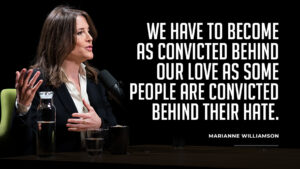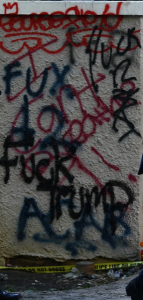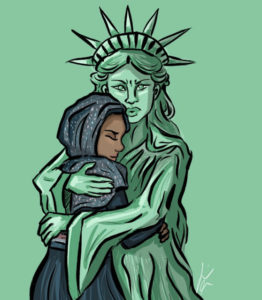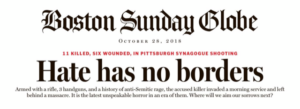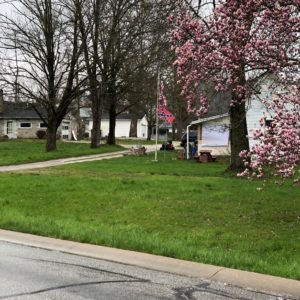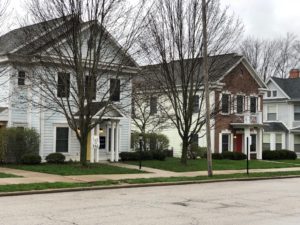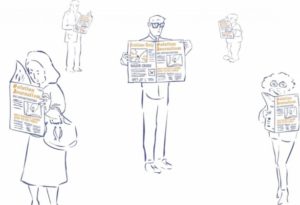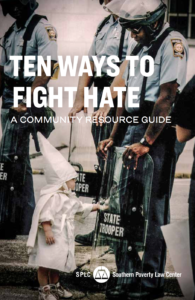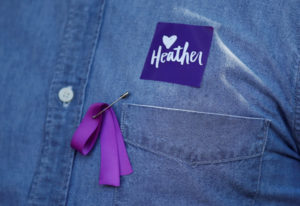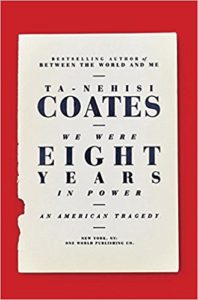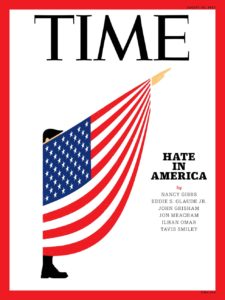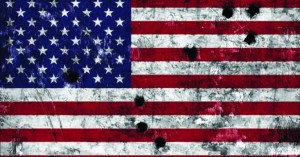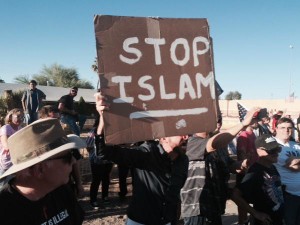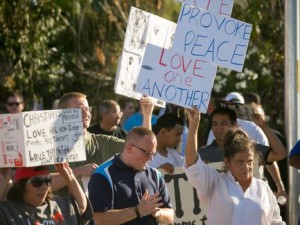In January 1898, the famous author Emile Zola wrote a stinging indictment of French leadership and its embrace of anti-Semitism for political ends. The scourge was, he wrote, a moral outrage, with powerful men embracing a deeply harmful, and potentially violent, ideology for short-term political gain.
Titled “J’accuse,” Zola’s public letter to the president of the republic – the immediate cause of which was to protest the military leadership’s anti-Semitic attacks on an officer named Dreyfus – still stands, more than a century later, as the gold standard for public intellectuals seeking to hold morally bankrupt political figures to account.
“What a cesspool of folly and foolishness, what preposterous fantasies, what corrupt police tactics, what inquisitorial, tyrannical practices!” Zola opined. “What petty whims of a few higher-ups trampling the nation under their boots, ramming back down their throats the people’s cries for truth and justice, with the travesty of state security as a pretext.”
I ACCUSE YOU, DONALD TRUMP, OF USING FEAR TO DIVIDE NEIGHBOR FROM NEIGHBOR. I ACCUSE YOU OF PLAYING RUSSIAN ROULETTE WITH AMERICA’S PRESENT STANDING AND ITS FUTURE POSITION IN THE WORLD. I ACCUSE YOU OF USING YOUR OCCUPANCY OF THE WHITE HOUSE NOT TO IN ANY CONCEIVABLE WAY IMPROVE THE GENERAL WELL BEING, BUT TO FURTHER YOUR NARCISSISTIC, VAIN, AND CRUEL FANTASIES.
During the election campaign, I attempted my own “j’accuse,” for the progressive web site Truthout, detailing the numerous ways in which candidate Trump was committing a form of moral treason – stoking up fears and hatreds that would be impossible to contain once unleashed. During that election season, Trump accused Mexican migrants of being drug peddlers and rapists, talked of banning all Muslims from entering the country, fueled rage against journalists and used crude racist and sexist rhetoric whenever the opportunity presented itself.
Since the election, Trump’s behavior has only gotten more appalling. We now have the grotesque, almost pornographic, spectacle of the most powerful man on earth using his platform to urge police forces to beat up suspects. Using his platform to denigrate immigrants as “animals” who like to torture young women. Using his platform to marshal the forces of the federal government against refugees.
Using his platform to personally attack private citizens. Using his platform to promote his nepotistic, almost Mafia-like web of family and business and political interests. Using his platform to attack programs that encourage racial and economic diversity in colleges.
Using his platform to hold Nuremberg-styled rallies using barely adolescent Boy Scouts as a background prop – a spectacle as creepy, and as redolent of insecurity, as that of a grown man boasting of his sexual exploits to gain street cred with a gaggle of awkward middle school kids.
Using his platform to urge states to make it ever harder for poor, especially nonwhite, Americans to access the ballot box. And most recently, allowing the North Korean leadership to draw him into a potentially apocalyptic, public game of nuclear bluff.
I could, of course, go on. But it is for unsavory lists like this that the convenient phrase “etc.” was invented.
Trump, in his full-fledged bullying, scaremongering, blustering cretinitude, is not just “un-presidential,” whatever that somewhat nebulous phrase means. He is actively and aggressively unhumane.
He scorns empathy and humility as weakness, curiosity about other cultures as effeteness, and actively embraces a might-is-right rhetoric (witness his snarling speeches in September 2016 and again a week after his inauguration in which he argued that America should have seized Iraqi oil, telling his audience “to the victors belong the spoils”) last employed in “the western world” that he claims to be saving from barbarian hordes by the expansionist Nazi regime from 1933-1945.
He has surrounded himself, domestically, by sycophants and propagandists who can serve as props to his fragile narcissism – witness the extraordinary spectacle of his first full cabinet meeting, much of which was taken up in outlandish expressions of praise for the president; and, internationally, by dictatorial buddies such as Erdogan, El-Sisi and Duterte, who are as far from embodying liberal, enlightenment values as are any modern-day leaders on earth.
Were Trump just a temporary distraction, one could perhaps choose to ignore him, or to minimize his importance by presenting him simply as a bizarre, reality-TV, outlier. A plastic president for a plastic age.
But there’s nothing temporary about Trump’s project. His vision, as laid out in his sickening “American carnage” inauguration speech, is to fundamentally reshape America as a nasty, brutish, ethno-nationalist citadel. I doubt that in the long run he will succeed in achieving this, not least because in addition to being a monstrous narcissist he is also chronically, dementedly, cartoonishly inept. Trump, the uncouth and uncultured businessman-president is, quite simply, a fiasco of a manager.
But what this Joker-like figure is far more likely to accomplish is the permanent wrecking of America’s unique status as the “indispensable nation” serving as glue for a liberal, pluralist, open international order. What he is far more likely to preside over is a permanent reduction in America’s global standing, as populations the world over look at his behavior and his actions and his values, look at the chaos he has unleashed, and the politics of fear that he has ridden to power in the United States, and turn their backs in contempt and shock.
And that is why I say, again, “j’accuse.” I accuse you, Donald Trump, of using fear to divide neighbor from neighbor. I accuse you of playing Russian roulette with America’s present standing and its future position in the world.
I accuse you of using your occupancy of the White House not to in any conceivable way improve the general well being, but to further your narcissistic, vain, and cruel fantasies. You are a morally puny man, Donald Trump, a bloated fellow who feels big only by making others feel small.
You puff up your chest and urge the police to beat up suspects, and urge the military to show no mercy on the enemy, and urge intelligence agents to torture those thought to be terrorists, not because any of this this will really make America safer but because in your twisted understanding of the world strength is shown only through violence.
And I say “j’accuse,” too, to the GOP leaders in Congress and in statehouses around the country who know exactly how toxic and unstable Trump is, yet continue to tolerate his banalities and his politics of fear in order to get their way on tax cuts, deregulation and judicial appointments.
Shame on the whole sorry lot of you. In tolerating a madman in office, you are permanently diminishing the country, you are scarifying its vital democratic edifice, you are coarsening the culture and playing havoc with the lives of millions of vulnerable people. The history books are never kind to men and women of such craven attitude. You are collaborators in Trump’s vile passion play.
SASHA ABRAMSKY’S 2013 BOOK,“THE AMERICAN WAY OF POVERTY,’ WAS LISTED BY THE NEW YORK TIMES AS ONE OF THE 100 NOTABLE BOOKS OF THE YEAR. HIS NEW BOOK,”JUMPING AT SHADOWS: THE TRIUMPH OF FEAR AND THE END OF THE AMERICAN DREAM,” WILL BE PUBLISHED BY NATION BOOKS IN SEPTEMBER. HE CAN BE REACHED AT SABRAMSKY@SBCGLOBAL.NET.
